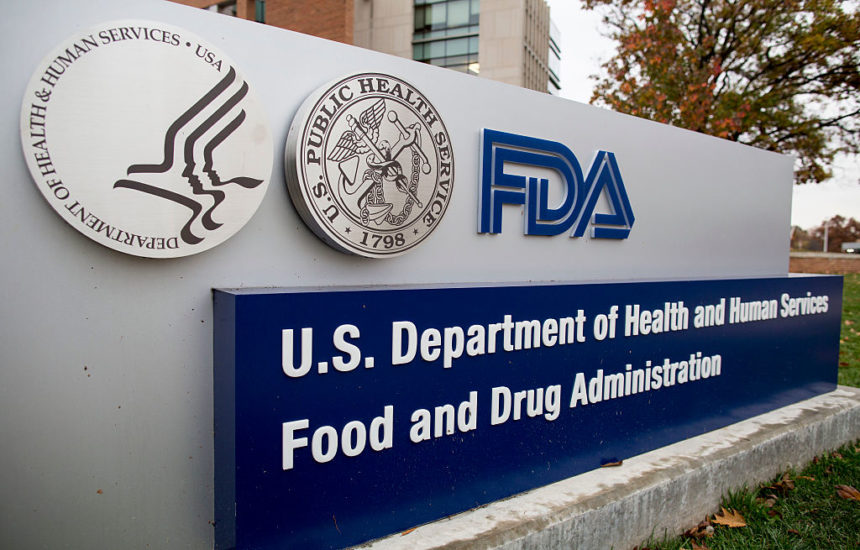It’s been a tough couple of years at the Food and Drug Administration.
Inspired in part by the tumult over the headline-generating infant formula crisis in 2022, the agency is planning to overhaul its structure to make its inspections more efficient and effective, officials announced last week.
At an Alliance for a Stronger FDA webinar Friday, agency leaders — including principal deputy commissioner Janet Woodcock — unveiled the agency’s reorganization plan. The multi-pronged approach involves reforming not only its human foods program but also its Office of Regulatory Affairs (ORA) as a whole.
“This is the largest reorganization in FDA’s history,” said Michael Rogers, the FDA associate commissioner for regulatory affairs. “There’s a level of excitement within the agency.”
The reorganization will affect some 8,000 people at the FDA, Rogers said, calling it a “huge culture change.”
What will the reorg look like?
There are a few aspects of the structural changes that are important to keep in mind.
The ORA, which is responsible for leading the agency’s field activities and inspections for its import, food, bioresearch and medical device programs, will be transformed into a new entity dubbed into the Office of Inspections and Investigations, or OII.
The OII will focus on inspections, investigations and import operations, Rogers noted in the meeting. The division will also go from having more than 5,000 employees to about 3,586.
“[OII] is a name that stands on its own and doesn’t need additional context,” Rogers said.
He added the new alignment will eliminate duplication and bring investigators closer to the center program staff, especially when the agency needs to react to and evaluate an ongoing violative inspection.
Making inspections more efficient includes closer collaboration and communication between the agency’s inspectors, product centers and leaders, Woodcock pressed.
“I hope we’re showing today that we’re really trying to model that right from the top,” Woodcock said. “We’re going to try and get to the place where we get the most done and protect public health by having a very collaborative culture, both internally and with our outside stakeholders.”
Infant formula woes continue
The nationwide infant formula crisis began nearly two years ago but its impact still looms large over the FDA.
In February 2022, the biggest infant formula manufacturer, Abbott Nutrition, recalled several products after they were linked to an outbreak of Cronobacter sakazakii.
A whistleblower had notified the FDA back in 2021 about safety concerns at Abbott Nutrition’s Michigan facility, but the agency failed to process or escalate the complaint to leadership.
The reorganization was partially spurred by a report issued in December 2022 by the Reagan-Udall Foundation, an independent nonprofit created by Congress to provide support to the FDA.
That report dug into the FDA’s turmoil amid the infant formula crisis and concluded that the agency’s organizational chaos and institutional siloes between food safety staff had contributed to the problem.
Lawmakers have called on the FDA to address its regulatory processes in the aftermath of the crisis, and questioned whether it had done enough internal work to prevent something similar from happening again.
“There is a lot of blame to go around,” Rep. Katie Porter (D-CA) said during a U.S. House Oversight and Accountability Subcommittee on Health Care and Financial Services hearing last year.
Woodcock acknowledged in the online meeting that much of the reorganization plan was “catalyzed” by the human foods program, but also said it is part of a much broader effort to transform several aspects of the FDA to make them more efficient and effective.
“When we looked at some of the problems and issues that were raised in the report and other reports about interactions between the ORA and the programs, this wasn’t limited to the foods program,” Woodcock explained. “We’re trying to move toward a more… holistic look at how the FDA functions. We think this will help ORA function better because they’ll have more uniformity in how they’re dealing with the various programs that they work with.”
Woodcock added that the overhaul will involve a lot more transparency around the FDA’s budget.
This reorganization is expected to be implemented throughout the year, though some experts noted that the proposed timeline is ambitious.
The agency has submitted its reorganization plan to the Department of Health and Human Services, but will still need its approval to get the ball rolling.
The reorganization plan also comes out as the FDA faces scrutiny over another regulatory issue: medical device safety.
Federal watchdog Government Accountability Office recently said it will launch an inquiry into the FDA’s medical device recalls after the agency did not issue sufficient warnings about Philips Respironics breathing machines being dangerous.
The agency had reportedly received numerous complaints about the machines before it issued a recall in 2021.
For a January 2024 article on FDA commissioner Robert Califf announcing adcomm reforms coming, praises AI potential, click here.







